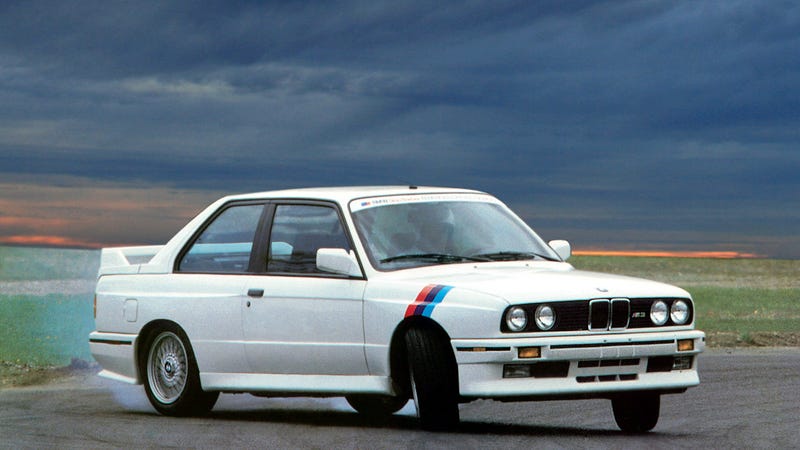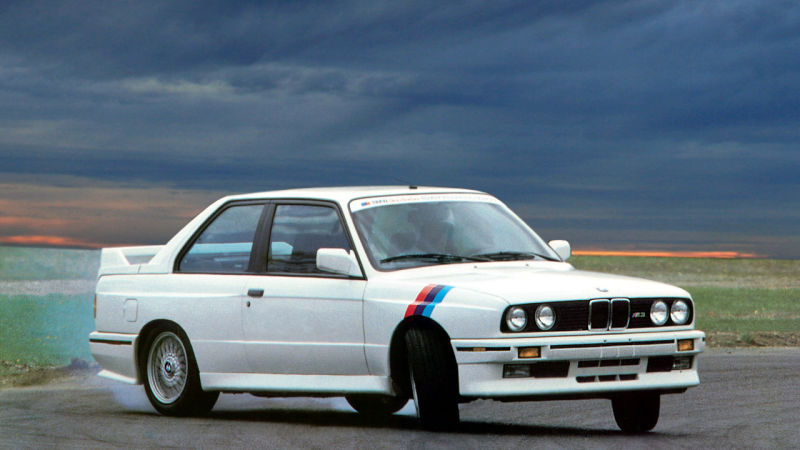
That car above is the original BMW M3. Under its hood lived four mighty cylinders of fury, each working hard to scream to a 7,250 RPM redline without even needing the help of a turbocharger. It was a mighty machine! But we haven’t seen four-cylinder M cars in some time, and it looks like we may not again.
BMW is focused on its six- and eight-cylinder M cars, and so a smaller four-cylinder M engine isn’t in the plan—even as rivals like AMG experiment with smaller engines on their hotted-up cars.
Advertisement
This news comes to us from Car Advice, which caught up with M Division chief Frank Van Meel at the Frankfurt Motor Show last week. This counters suspicion in recent years that BMW would go below six cylinders on cars like the M3 and M4:
“We are really happy with our six-cylinder [engines] because for BMW and BMW M that is our heritage engine. We started with six-cylinder in the M1 so it has a long history. BMW is a six-cylinder inline company and, for us, it’s an iconic engine,” Van Meel said.
“If you look at it with a four-cylinder, I don’t see characteristics that I would like on an M car, on a small displacement turbocharged four-cylinder engine. I wouldn’t do a four-cylinder standalone turbocharged with high performance, because you always have the characteristic that if you want high performance you lose the low-end torque and you lose the overall driveability you want to have from the car.”
Emphasis mine, because this is an interesting example of how the M Division—and BMW’s engines in general—has evolved. For the longest time, M cars were high-revving, naturally aspirated affairs that started to get really fun when you wrung them out. The inline-six and V8 M3s definitely had this quality too.
Advertisement
But lately the entire BMW lineup has been turbocharged, and while modern M cars are very quick and have a ton of low-end torque, that revvy character isn’t really a thing anymore.
I think there were several reasons for this. Turbocharging and downsizing is common now for efficiency reasons, and losing stratospheric RPMs is a symptom of that. Plus, I’m sure your average M buyer—the kind who buys an M car because it’s the most expensive 3 or 5 or whatever, not because they do track days—welcomed low-end grunt over actually having to work for speed.
I also dispute Van Meel’s assertion that inline-sixes alone are the “heritage engine(s)”, because BMW has a long history of cool four-banger cars. These include the 2002, 2002 Turbo, 318is, the aforementioned E30 M3 and many more.
Anyway, Van Meel follows up by adding that there won’t be a hybrid M powerplant anytime soon either, mostly for weight reasons. From the story:
“With the current generation we see ‘E’ motors that are still not strong enough for M applications, and if you look at plug-in hybrids, it will add 2-300kg – which, for a car like an M3/M4 with 1500kg – would put that completely out of balance and we couldn’t rebalance that towards a typical M philosophy.”
More than fair. Knowing how BMW does business, I think an electrified M car won’t happen until it absolutely has to.
Advertisement
So I can see both sides here. On one hand, downsizing doesn’t always work out great, and it’s good to see BMW sticking with larger engines in its performance cars. On the other, it would be nice to see someone else experiment with high-strung four-cylinder motors. The CLA45 AMG certainly isn’t lacking in fun for being small, and neither are the latest hot hatches from makers like Honda, Subaru and Ford. A crazy four in the next M2 would be a compelling proposition if it helped keep weight down.













